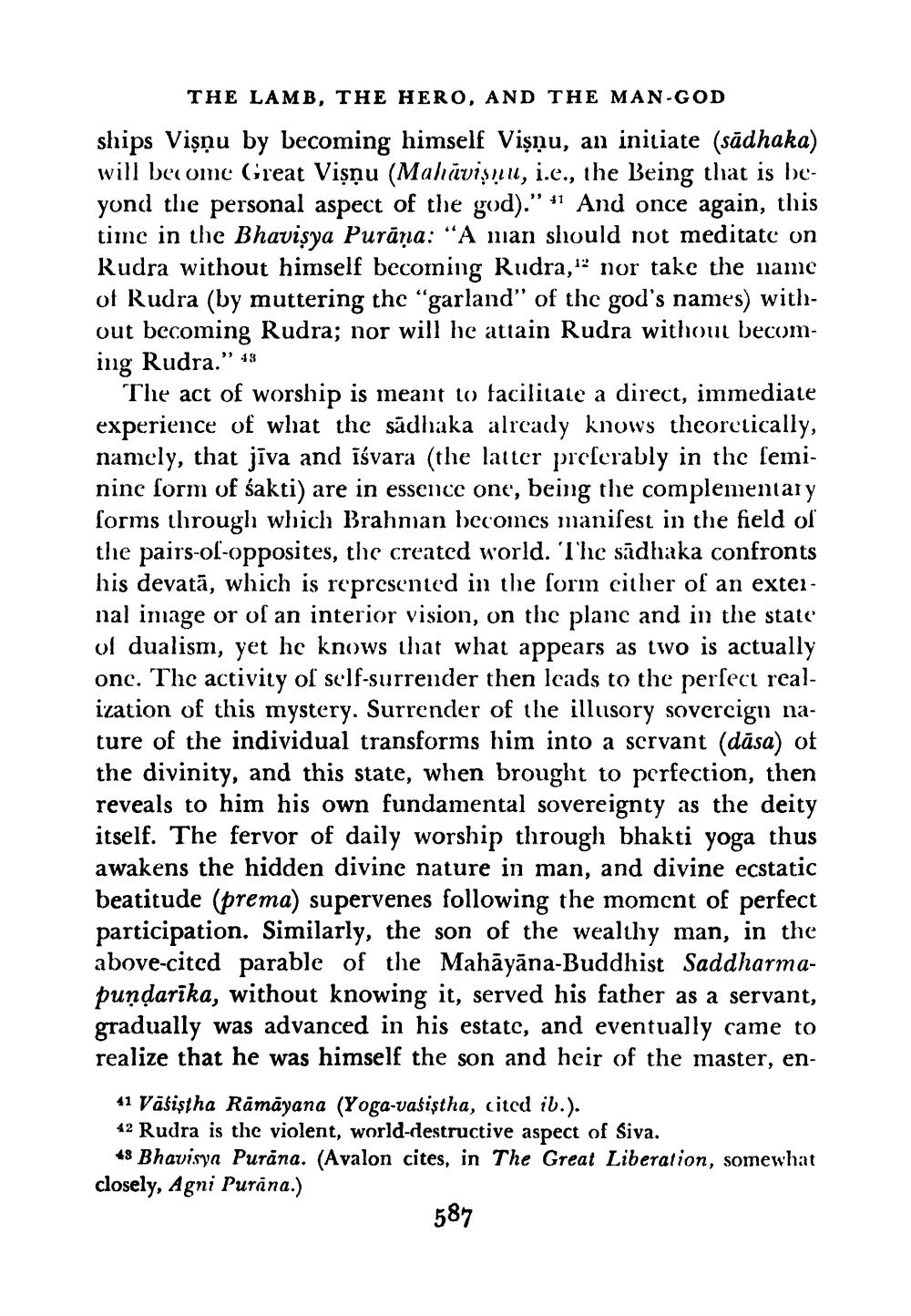________________
THE LAMB, THE HERO, AND THE MAN-GOD ships Vişņu by becoming himself Vişnu, an initiate (sādhaka) will become Great Vişņu (Mahāvisnu, i.e., the Being that is beyond the personal aspect of the god).” *1 And once again, this time in the Bhavisya Purāņa: "A man should not meditate on Rudra without himself becoming Rudra,” nor take the name of Rudra (by muttering the “garland” of the god's names) without becoming Rudra; nor will be attain Rudra withou becoming Rudra.” 13
The act of worship is meant to facilitate a direct, immediate experience of what the sādhaka already knows theoretically, namely, that jīva and iśvara (the latter preferably in the seminine form of sakti) are in essence one, being the complementary forms through which Brahman becomes manisest in the field of the pairs-of-opposites, the created world. The sādhaka confronts his devatā, which is represented in the sorin cither of an external image or of an interior vision, on the planc and in the state of dualism, yet he knows that what appears as two is actually onc. The activity of self-surrender then leads to the perfect realization of this mystery. Surrender of the illusory sovercign nature of the individual transforms him into a scrvant (dāsa) of the divinity, and this state, when brought to perfection, then reveals to him his own fundamental sovereignty as the deity itself. The fervor of daily worship through bhakti yoga thus awakens the hidden divine nature in man, and divine ecstatic beatitude (prema) supervenes following the moment of perfect participation. Similarly, the son of the wealthy man, in the above-cited parable of the Mahāyāna-Buddhist Saddharmapundarika, without knowing it, served his father as a servant, gradually was advanced in his estate, and eventually came to realize that he was himself the son and heir of the master, en
41 Vāsiştha Rāmāyana (Yoga-vasiştha, cited ib.). 42 Rudra is the violent, world-destructive aspect of Siva.
48 Bhavisya Purana. (Avalon cites, in The Great Liberation, somewhat closely, Agni Purana.)
587




